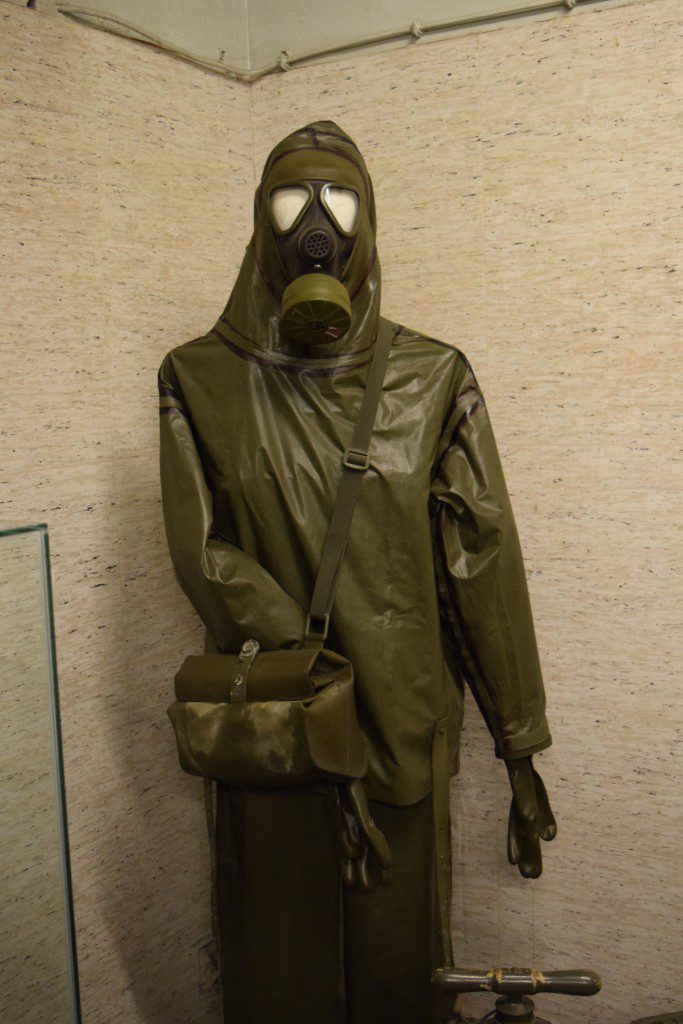
That’s a post title that I wrote after Sean Spicer said, “even Hitler didn’t use poison gas,” then had to retract his statement multiple times, because, of course, what he meant to say was “. . . on the battlefield”, and he didn’t, seeming to discount the Holocaust.
And the Washington Post was quick to publish a piece, by Michael S. Rosenwald, addressing that very question – except it turns out that there’s not really an answer. The Nazis had sarin. According to the article, German officers wanted to use it.
Rosenwald points to two possible elements at play.
Hitler was temporarily blinded in a mustard gas attack in World War I. Some have speculated that this experience lead him to object to chemical weapons on the battlefield. But why would it have? It could just as easily have produced a desire to take revenge — after all, he didn’t react to the overall suffering of Germans in World War I by adopting pacifism.
The author also proposes that he afraid that Churchill would have retaliated in kind. But that would only explain Hitler’s decision in battlefields where Hitler was fighting Western armies — North Africa, Italy, and eventually the Western Front.
What about the East? They would have been a much more natural target, since they were classified as Slavs, and inferior peoples. Even disregarding their genocide against the Jews, the Nazis had no concerns about starving Soviet POWs, or retaliating for partisan attacks by destroying entire villages, had a master plan of starving the cities of Poland, and, after the Warsaw Uprising, destroyed the city of Warsaw block by block with flamethrowers, not out of any military objective but purely as retribution, to name only a few of their war crimes.
So, that being said, here’s what the Post’s commentariat has to say:
LightlySaltedTarako: Hitler did not use chemical weapons because they are not very effective. Military leaders figured out pretty quickly after WWI that conventional weapons are much more effective. It had absolutely zero to do with anyone’s scruples or feelings.
I learned this during my Air Force Biological and Chemical Weapons training. These weapons have very limited effective uses for true military operations.(He provides a link: https://www.stratfor.com/sample/analysis/world-war-i-and-legacy-chemical-weapons)
snowball1025: It is not a mystery at all. It is well documented. They didn’t use gas because 80% of the German Army used horses for transport. They used gas one time, killing thousands of Russians, in the eastern Balkins (sic). But mainly they didn’t use gas on the battlefield for fear of killing their horses.
Kahled al-Asaad: The main reason was that gas weapons are notoriously unpredictable. All that’s needed to poison your own troops is a sudden change of wind direction (something that happened frequently in WWI). While they have very high psychological value they have limited (at best) field value.
accidental flyer: Horses & Mules! It’s a myth that the Wehrmacht was highly mechanized. In fact the allies were far more mechanized. The Germans relied on animals to for transportation heavily and till the end, and apparently they never figured out how to produce animal gas masks. Regarding aerial bombing: nobody figured out how to deliver chemical weapons effectively as bombs during WWII, and V1 & V2 payload too small to deliver chemical weapons. So technical limitation.
Noah Lehr: The Germans stumbled upon Tabun, not Sarin, and it was Tabun that the Nazis had in tens of thousands of bombs and shells at the time of D Day. The reason they did not use it was because they had noticed our press suddenly started censoring chemical news about the same time they found Tabun. They thought we had nerve gas too. We did not! We had a miracle chemical that would protect our vital food supply, and thus it was a secret – DDT! By an accident of faulty intelligence analysis – we successfully stormed the beaches, when the Germans could have actually wiped up right out.
Which is all very interesting, though all the more peculiar if the German generals truly did want to use it and Hitler overrode them. (Maybe Rosenwald is wrong on this point?) These reasons are certainly different than the “Hitler might have been a monster, but he followed International Law about chemical weapons” rationale, which is hard to believe. And it does point to a set of reasons that are not applicable in a place like 2017 Syria, where Assad could launch an attack by air, without harming his own soldiers.
But it does raise the bigger question of whether chemical warfare is any more heinous than conventional warfare, and whether there are reasons for outside powers to step in, solely due to the use of chemical weapons in any fashion? Or is the red line, chemical weapon attacks specifically on civilians – and, in that case, are chemical weapons, again, worse than attacking civilians with bombs, and, if so, is that because of the chemicals themselves or insofar as they are indiscriminately deadlier?
Image: own image. Protection from radiation, not poison gas, from the Dokumentazionsstatte Regierungsbunker (see the link for more photos).












